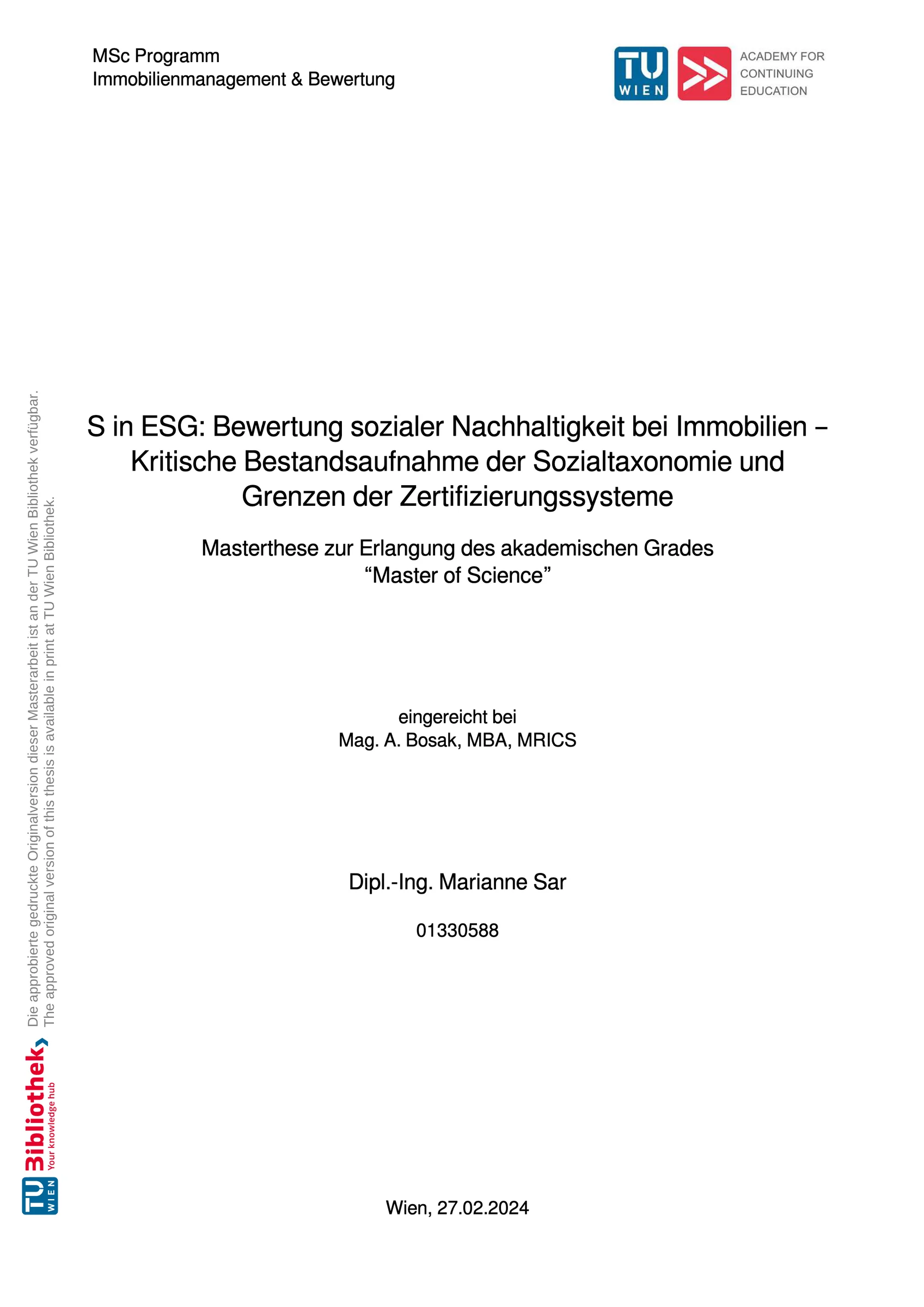AI-Generated Summary
Learn moreContext and Purpose
This document presents a master's thesis authored by Marianne Sar at TU Wien, focusing on social sustainability within the real estate sector. The thesis critically analyzes social taxonomy and the limitations of certification systems in relation to sustainable housing. The work emphasizes the growing importance of social aspects in sustainability, particularly within the context of the Environmental, Social, and Governance (ESG) framework.
Key Findings
The thesis highlights that while ecological factors have dominated discussions on sustainability in real estate, the social dimension is increasingly recognized as crucial. The research identifies a significant gap between theoretical acknowledgment of social sustainability and its practical application in real estate projects. The complexity of various ESG regulations and reporting standards complicates the effective integration and reporting of social sustainability aspects.
Social Taxonomy Analysis
Sar’s work stresses the need to untangle this complexity and proposes frameworks for designing buildings that generate social value. This includes considerations such as community engagement, infrastructure design, and accessibility. The thesis thoroughly analyzes the social taxonomy as a tool for systematically collecting social sustainability criteria and evaluates the established ÖGNI certification system in Austria for its efficacy in capturing social sustainability metrics.
Certification System Limitations
The study reveals limitations in the ÖGNI system regarding its ability to fully encompass social sustainability criteria. Sar identifies additional social criteria necessary for a more comprehensive evaluation of social sustainability in buildings. A criteria catalog is presented, detailing the social indicators that align with the social taxonomy.
Innovative Assessment Model
To further the understanding of social sustainability, the thesis develops a "Score Card" model that serves as a practical tool for evaluating social sustainability in real estate. This model aims to enhance transparency and provide actionable insights for improving the social aspects of properties. The findings suggest that a well-structured assessment framework can significantly benefit companies by guiding them toward better social sustainability outcomes.
Conclusion
Overall, the thesis contributes to the ongoing discourse on social sustainability in the real estate sector, illustrating the need for a unified approach to defining and measuring social criteria. It underscores the potential of integrating social sustainability into real estate practices, aligning with broader European sustainability goals, and ultimately fostering healthier urban environments.
